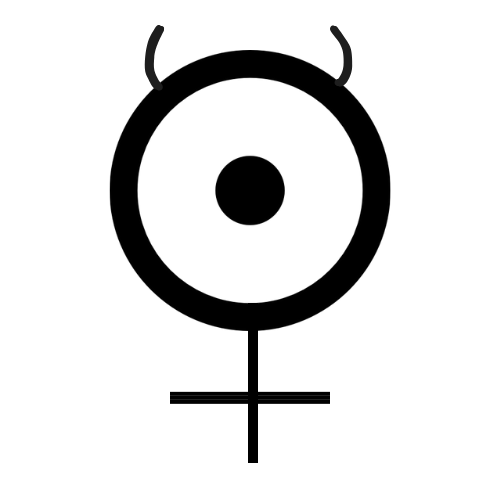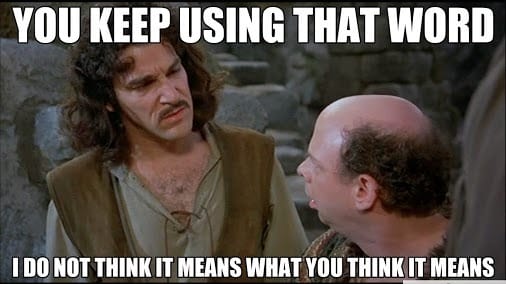How to Know If Your Psychic Reader is Legit
This is a re-post from 2019, first published on my now-defunct business blog. I figured it could still be useful for someone out there.
***
As I’ve talked about before, finding a psychic reader who has real skills is not always easy. A lot of sketchy individuals have thrived for decades off of the mysterious side of divination to prey on first-time seekers through fear-mongering and overcharging. However, even many side street readers have websites now, which excitingly integrates them into the general category of internet literacy. So here are a few things to look out for if you are searching for readers or psychics nearby:
They Should Clearly List Their Methods
Are you expected to know every single common term in the metaphysical space? Absolutely not! (That said, I am going to leave a dictionary at the end of this article for you.)
In the interest of transparency, a legitimate reader will include some or all of these in their service descriptions:
- What kinds of questions you can ask
- How many questions you can ask
- What tools they are going to use to help answer your questions
- How much time you will have in the reading

Results are not always abundantly or immediately clear in this space, so both you and the reader need these parameters to make sure you are getting your money’s worth. In comparison, let’s say you called a plumber to fix your appliance. A good plumber would tell you how much the initial visit would cost and, after assessment, what part of your appliance has failed, how much the new part is going to cost, and how long it will take it come in/be installed. You need to be able to say you were able to go into a reader’s business, ask 3 questions about your love life, and watch the reader shuffle and pull tarot cards along with their answers for 30 minutes.
Friends have shown me some perplexing pricing models, including readers who sell tarot services by half a deck and a full deck. I would stay away from offerings like this. A plumber would not sell you half an appliance part, don’t take a reading that cuts your potential answers in half.
Don’t Be Intimidated By Terminology
If you’re already googling “psychic readings near [place]” you might as well search for “Akashic Records” or “Lenormand” as well. They are both complex ideas, but on a surface level both at least gives you a better idea of what the most transparent service descriptions are saying. Readings or reading tools that interlock into a collective practice or larger system have rules that involved people have relied on for centuries.
In contrast, there are certain words that are so commonplace that in some contexts you may call them meaningless. Particularly, I am referring to the words “psychic” and “intuition.” I’m not saying at all that these words are meaningless all the time. However, they are not methods, but innate qualities you can’t see in a person by merely looking at them.

So if someone has on their website “psychic readings” or “intuitive readings,” but doesn’t explain how the reading will go or what you will get out of it, move on and find another reader who will explain.
Look To Metaphysical Stores for Authenticity
If someone has devoted their life to what we can humorously refer to as esoteric retail, they have seen a lot of esoteric stuff. They also want you to come back repeatedly and with trust in order to buy their esoteric stuff so that they can continue to pay the store’s rent (and help you, if they are nice). As such, they have a strong incentive to not let charlatans ruin the reputation of their business.
Many metaphysical stores employ readers, hold reading events, or have readings regularly available. Check your nearest store’s website or social media to see what their situation is and scan whatever offerings they have hosted online. I strongly recommend calling ahead because they may not have readings daily and you don’t want to miss something by cruising through town on the wrong day of the week.

Even if your store doesn’t have readings, give them a call anyway. They usually have a network and can refer you because storefronts are one of the few in-person places to find likeminded community.
Conclusion and Dictionary
Overall, be safe and be skeptical. Don’t be afraid to ask yourself if you have basic expectations of how the reading will be structured. Do a little more googling if you need to. Don’t on a whim pay that $10 psychic in front of the Met, she will suck (that’s a message to past Phoebe Rae, you’re doing great).
Some definitions to make your life simpler:
Akashic Records: The concept that there is a collective metaphorical library that holds copies of everyone’s soul information. When used in a reading, the reader will channel their spirit guides or your spirit guides to get information about your past/current lives and advice for your life path.
Aura readings: Where the reader uses their intuitive abilities to scan your energy field and give energetic healing advice.
Bone Casting: See Lot Casting. Using animal bones.
Cartomancy: When a reader uses decks of cards to answer your questions. These cards may be tarot cards, oracle cards, Lenormand cards, or even regular playing cards.
Crystal ball: See Scrying. This is the most famous tool of a varied practice.
I-Ching: An ancient Chinese system that uses yarrow sticks and/or coin tosses abiding by a specific binary system that leads to 64 hexagram descriptions pertaining to your query
Intuition: A skill we all have, and intuitive readers have specifically practiced and honed theirs in order to receive more and accurate information in any type of reading they perform. Intuition plays a part in every reading.
Lenormand: See Cartomancy. A type of card deck named after and based off French fortune teller Marie Anne Lenormand. A very practical and straightforward method that gives answers in sentence form.
Lot Casting: When a reader throws items of their choice--usually animal bones, charms, runes, or other knick knacks--into a designated space and examines the patterns they fall into in order to answer your questions.
Medium: An individual who sees and connects with spirits of those who have passed on your behalf. Some really talented mediums don’t need names or reference photos to reach the right spirit. I personally would not offer a medium both unless they were associated with a trusted metaphysical store.
Numerology: A reader uses a system like Gematria (an ancient Jewish numbers system) to equate basic information like your name and birthdate to certain final numbers that will tell you more about your life path. Numerology is also part of some people’s tarot reading styles.
Oracle Cards: See Cartomancy. A name that refers to any deck of cards created with intention to be used in readings that are not standard playing cards, tarot, or Lenormand.
Palmistry: When a reader examines your palms and shows you what certain lines correlate to in your life (and longevity).
Psychic: Like intuition, an ability we all have. People who work as readers may also refer to themselves as “psychics” among other titles. Psychic abilities usually refer to some mix of intuition, working with or understanding energy, or being able to interact with spirits. Someone who does psychic readings should clarify their methods when promoting their services.
Rune Casting: See Lot Casting. Using small tablets with the Norse alphabet inscribed on them.
Scrying: The use of a reflective surface, like a crystal ball, or material with random movements, like incense smoke, to uncover answers about an issue or foretell the future.
Seance: See Medium. A group event headed by a medium where any spirits related to the attendees (or the location) are welcomed to step forward and interact with the group.
Tarot: See Cartomancy. The most (in)famous type of card decks used for readings. Marseille, Rider-Waite-Smith, and Thoth make up the 3 best known tarot systems. Check out other articles on this blog to learn more about tarot!
Tea Leaf Reading, or Tasseography: Readings that usually involve a reader and you drinking a cup of tea together as you ask questions. The reader then examines the pattern the tea leaves have left in the bottom of their cup in order to answer.



